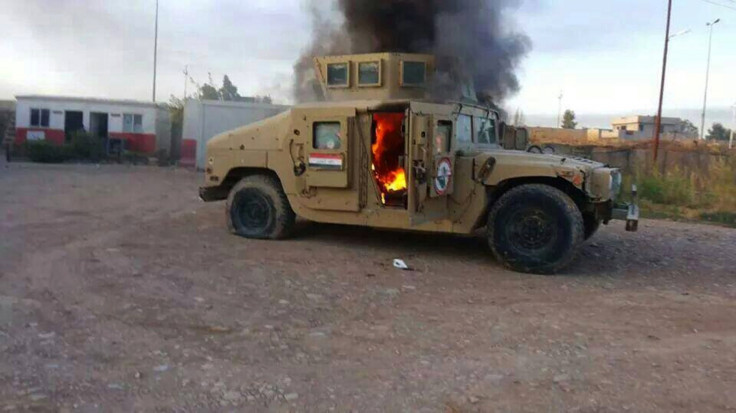Mosul military commander 'on vacation' as Isis prepared to seize city

The top Iraqi army commander in Mosul remained on vacation as Iraqi intelligence warned an Isis attack on the city was imminent in June, 2014, according to an Iraqi parliamentary report.
The 114-page report seen by the Washington Post claims that only one-third of the soldiers assigned to the city were on duty when it was seized by the jihadist group on June 5.
Isis has since made the city its Iraqi capital, imposing its brutal interpretation of Sharia law.
Painting a picture of incompetence and corruption in the Iraqi army, funded by the US to the sum of $25 billion, the report noted that the fall of the city "was an event that surprised the world. But those who were informed about the security situation in the province realised this was going to happen eventually".
The report claims that officials ignored warnings from intelligence that Isis had been blocking supply routes and destroying bridges for six months in preparation for an assault on the city before it fell.
Gen. Mahdi Gharawi, head of the Nineveh Operations Command, missed an emergency meeting of military commanders to discuss Isis plans to conquer the city as he was on vacation, according to the report. He returned just hours before Isis seized the city on June 5.
The Iraqi army lacked a clear command structure, with senior officers appointed on political bias, the report alleged. It also claimed intelligence reports provided coordinates for Isis bases, but airstrikes were never ordered.
Only one-third of the soldiers supposed to be on duty in the city at the time of the attack were there, according to the report. The committee claims that up to half of the soldiers garrisoned in Mosul did not exist, and a half of those who did were on holiday at any given time, while desertions were not reported, and officers collected their salaries. The report also found soldiers arbitrarily arrested civilians and charged thousands of dollars for their release.
The fall of Mosul is one of a series of humiliating defeats for the Iraqi army at the hands of Isis. Though the military, supported by Shia militias and US airstrikes, managed to oust Isis from the city of Tikrit, provincial capital Ramadi fell to the jihadist group in June. Efforts to retake the city have made little progress, while plans to retake Mosul have stalled.
Gharawi is one of 35 Iraqi officials the report argues should face criminal charges for allowing Isis to seize control of swathes of Iraq. Also mentioned was former Iraqi prime minister Nouri al Maliki, who denied accusations of incompetence, and claimed that a Turkish 'conspiracy' was behind the fall of the city.
© Copyright IBTimes 2025. All rights reserved.




















